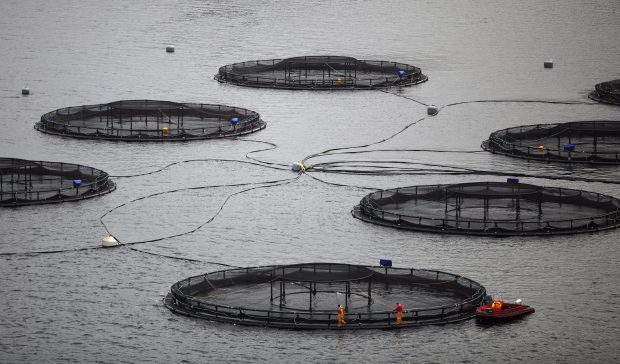A controversial fish farm in the Hebridean islands was approved today – but it must turn lights off for eight months of the year.
In addition there were conditions to protect porpoises and other wildlife at the national nature reserve.
Marine Harvest (Scotland) Ltd wanted to site 12 pens with a 120 metre circumference on the north east coast of the isle of Rum, and so not to attract endangered sea birds, the farm’s lights must be switched off.
Each cage would be in a 75 metre mooring grid and the overall planning area would cover 850 metres x 500 metres with an additional smaller rectangle.
There were six objections to Highland Council’s south planning applications committee with concerns over the impacts on the marine environment, on wild salmonid rivers and migratory salmon, freshwater pearl mussels, commercial fisheries, other designated sites and species and the use of acoustic deterrent devices.
Though it did not object overall Scottish Natural Heritage was concerned that the regular movement of service boats to the farm could discourage birds from the area and displace them to further off locations with negative impacts upon their breeding success.
“In the light of this SNH requested conditions requiring a boat traffic protocol to be agreed and a prohibition on the use of anti-predator or gill nets which raise the risk of entanglement for the birds. SNH also raised a concern in respect of Manx shearwaters being drawn to artificial lighting,” said a report to the committee.
“The applicant has confirmed that underwater lighting used to control fish growth will only be used in the winter and these birds are only resident during March – October.”
The scheme was approved subject to conditions including that no acoustic deterrent devices shall be installed or operated to protect porpoises, no underwater lighting between March 1 and October 31 to minimise the risk to Manx shearwaters.
It also includes agreed boat protocols to safeguard red throated divers as well as an agreed sea lice management plan – in relation to the impact on wild fish – including cumulative effects.
